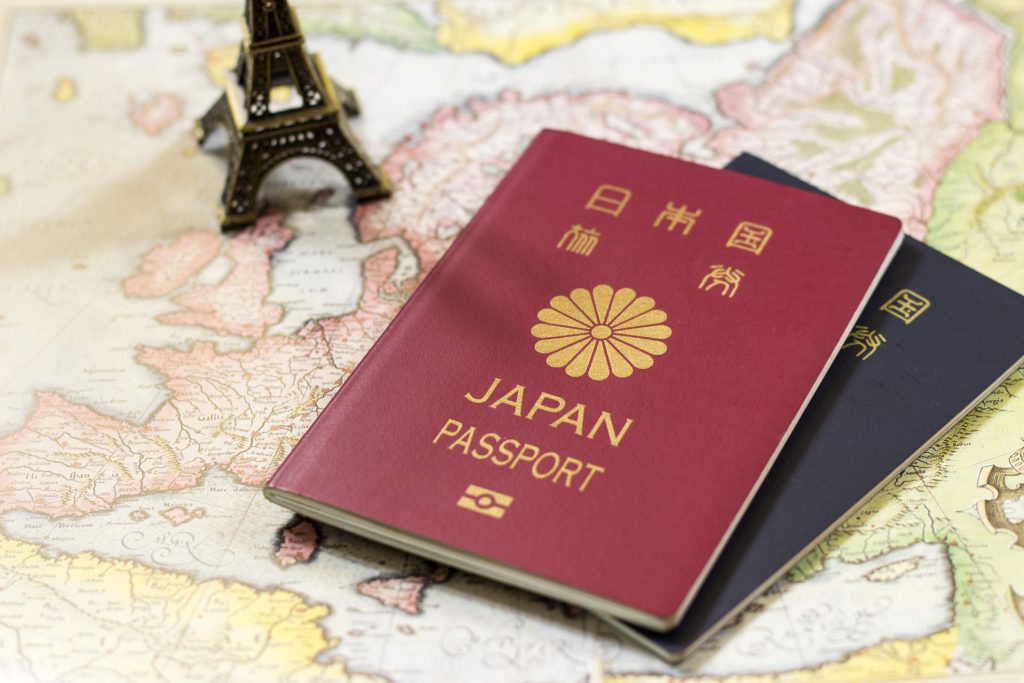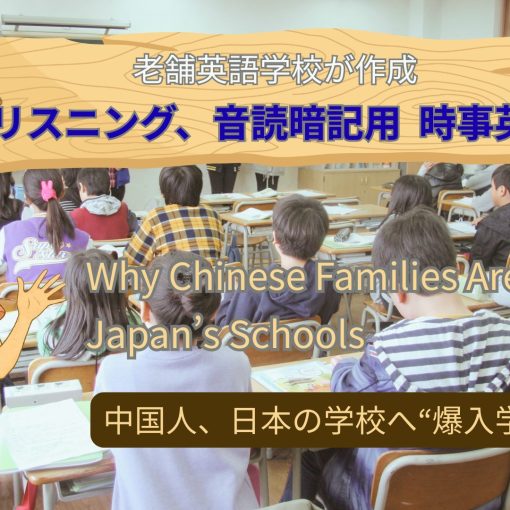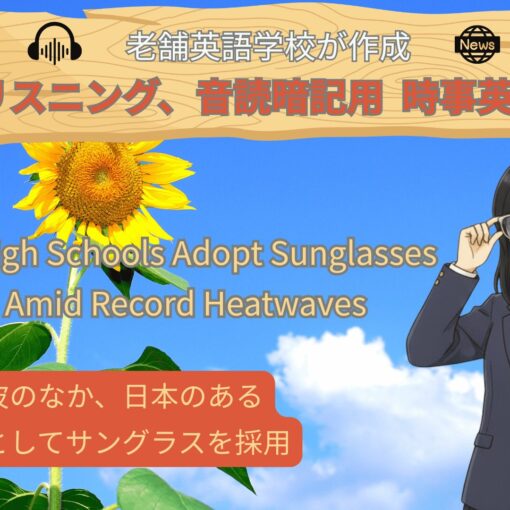
Dr. ECOM: Hi George! Do you remember what a passport is for?
George: Yeah! It’s that book that lets me travel on an airplane to other countries, like when we visited Mexico!
Dr. ECOM: Exactly! It’s like a special ticket to visit the world. Well, I learned something interesting about Japan. Here, not as many people have passports as they do back home in America.
George: Really? Why not? Isn’t it fun to visit other countries?
Dr. ECOM: It is fun! But there are a few reasons. First, getting a passport and buying airplane tickets to fly far away costs a lot of money. It’s like saving up for a really big Lego set – sometimes it’s hard to save enough.
George: Oh, so it costs too much money for some families?
Dr. ECOM: It can be expensive, yes. Also, remember when COVID-19 was making people sick? For a few years, it was very difficult for anyone to travel between countries. So, maybe some people didn’t get a passport then.
George: We couldn’t travel much then either.
Dr. ECOM: That’s right. Another thing is, Japan is an island country. You can’t just drive your car to a different country like you might drive from the US to Canada or Mexico. You usually need to take an airplane or a boat.
George: So it’s harder to just go?
Dr. ECOM: It takes more planning and money than a short car trip. And, Japan also has many, many amazing places to visit right here inside the country – mountains, beaches, cool cities! So, many people enjoy traveling around Japan instead of going overseas.
George: So… it costs a lot, it was hard to travel because of sickness, it’s harder to get to other countries from an island, and there are fun places here too?
Dr. ECOM: You got it, George! You explained that perfectly. Those are the main reasons why fewer people in Japan have passports compared to people in America right now.
George: Okay, that makes sense. Thanks, Dr. ECOM!
Dr. ECOM: You’re welcome! It’s always interesting to learn how things are different in other parts of the world.
Dr. ECOM: Hi George! Do yo* re****** wh** a pa****** is fo*?
George: Ye**! It’* th** bo** th** le** m* tr**** o* a* ai****** t* ot*** co********, li** wh** w* vi***** Mexico!
Dr. ECOM: Ex*****! It’* li** a sp***** ti**** t* vi*** th* wo***. We**, I le***** so****** in********* ab*** Japan. He**, no* a* ma** pe**** ha** pa******** a* th** d* ba** ho** i* America.
George: Re****? Wh* no*? Is**’* i* fu* t* vi*** ot*** pl****?
Dr. ECOM: I* i* fu*! Bu* th*** ar* a fe* re*****. Fi***, ge***** a pa****** an* bu**** ai****** ti****** t* fl* fa* aw** co*** a lo* o* mo***. It’* li** sa**** u* fo* a re**** bi* Lego se* – so******* it’* ha** t* sa** en****.
George: Oh, s* i* co*** to* mu** mo*** fo* so** fa******?
Dr. ECOM: I* ca* b* ex********, ye*. Al**, re****** wh** COVID-19 wa* ma**** pe**** si**? Fo* a fe* ye***, i* wa* ve** di******** fo* an**** t* tr**** be***** co******** be***** o* th**.
George: W* co*****’* tr**** mu** th** ei****.
Dr. ECOM: Th**’* ri***. An***** th*** is, Japan i* a* is**** co*****. Yo* ca*’t ju** dr*** yo** ca* t* a di******** co**** li** yo* mi*** dr*** fr** th* US t* Canada o* Mexico. Yo* us***** ne** t* ta** a* ai****** o* a bo**.
George: S* it’* ha**** t* ju** go?
Dr. ECOM: I* ta*** mo** pl****** an* mo*** th** a sh*** ca* tr**. An*, Japan al** ha* ma**, ma** am***** pl**** t* vi*** ri*** he** *ie* th co* – mo********, be*****, co** ci****! So, ma** pe**** en*** tr******* ar**** Japan in***** o* go*** ov******.
George: So… i* co*** a lo*, i* wa* ha** t* tr**** be***** o* si******, it’* ha**** t* ge* t* ot*** co******** fr** a* is****, an* th*** ar* fu* pl**** he** to*?
Dr. ECOM: Yo* go* it, George! Yo* ex******* th** pe********. Th*** ar* th* ma** re***** wh* fe*** pe**** i* Japan ha** pa******** co****** t* pe**** i* America ri*** no*.
George: Ok**, I th*** I ge* it. Th****, Dr. ECOM!
Dr. ECOM: Yo*’** we******! It’* al**** in********* t* le*** ho* th**** ar* di******** i* ot*** pa*** o* th* wo***.
■ Vocabulary:
compared to… (〜と比較すると)
- 何かと何かを比べる時に使う基本的な表現です。
- 例: “Fewer people have passports compared to America.” (アメリカと比較すると、パスポートを持っている人は少ないです。)
costs ((費用が)かかる)
- 動詞で、物やサービスに必要な金額を表します。「cost + 金額」や「cost a lot of money (たくさんお金がかかる)」のように使います。
- 例: “Airplane tickets cost a lot of money.” (飛行機のチケットはたくさんお金がかかります。)
saving up (お金を貯めること)
- “save up” で「(特定の目的のために)お金を貯める」という句動詞です。ここでは動名詞 (-ing形) になっています。
- 例: “Saving up for a big toy.” (大きなおもちゃのためにお金を貯めること。)
island country (島国)
- 国土が島または複数の島々から成る国のことです。地理的な説明で使われています。
- 例: “Japan is an island country.” (日本は島国です。)
instead of… (〜の代わりに)
- ある事柄の代わりとして別の事柄を挙げる時に使う前置詞句です。
- 例: “Traveling around Japan instead of going overseas.” (海外に行く代わりに日本を旅行すること。)
makes sense (理にかなっている、意味がわかる、なるほど)
- 何かが論理的である、理解できる、納得できると感じた時に使う非常に一般的な口語表現です。
- 例: “Okay, that makes sense.” (なるほど、それは理にかなっていますね。)
■ 和訳
どうして日本ではパスポートを持っている人が少ないの?
Dr. ECOM: やあ、ジョージ!パスポートが何のためのものか覚えているかな?
George: うん! あの本でしょ、飛行機に乗って他の国に行けるやつ! メキシコに行った時みたいに!
Dr. ECOM: その通り! 世界を訪れるための特別なチケットみたいなものだね。さて、日本について面白いことを知ったんだ。ここでは、君の故郷のアメリカほど多くの人がパスポートを持っていないんだよ。
George: ほんと? どうして? 他の国に行くのって楽しくないの?
Dr. ECOM: 楽しいよ! でもね、いくつか理由があるんだ。
まず、パスポートを取ったり、遠くまで行く飛行機のチケットを買ったりするには、たくさんお金がかかるんだ。すごく大きなレゴセットのためにお金を貯めるのに似ているかな。十分なお金を貯めるのが難しい時もあるんだ。
George: へえ、じゃあ、家族によってはお金がかかりすぎるってこと?
Dr. ECOM: お金がかかることもあるね、うん。
それに、新型コロナウイルス(COVID-19)でたくさんの人が病気になっていた時のことを覚えているかな? そのせいで、何年もの間、国と国の間を旅行するのが誰にとっても非常に難しかったんだ。
George: 僕たちもあの時はあまり旅行できなかったよ。
Dr. ECOM: そうだね。もう一つはね、日本は島国なんだ。アメリカからカナダやメキシコに車で行くみたいに、簡単に車で違う国に行くことはできないんだ。普通は飛行機か船に乗る必要があるんだよ。
George: じゃあ、行くのがもっと大変なの?
Dr. ECOM: 短い車の旅行よりも、計画もお金ももっと必要なんだ。
それに、日本には、この国の中にも訪れるべき素晴らしい場所が、たーくさんあるんだよ。山や、海や、かっこいい街とかね! だから、多くの人は海外に行く代わりに、日本の中を旅行するのを楽しんでいるんだ。
George: じゃあ…お金がたくさんかかるし、病気のせいで旅行が大変だったし、島だから他の国に行くのがもっと大変で、それに、ここにも楽しい場所があるってこと?
Dr. ECOM: その通りだよ、ジョージ! 完璧に説明できたね。それらが、今、日本でパスポートを持っている人がアメリカの人たちと比べて少ない主な理由なんだ。
George: わかった、わかった気がする。ありがとう、ECOM博士!
Dr. ECOM: どういたしまして! 世界の他の場所では物事がどう違うのかを知るのは、いつだって面白いことだからね。
ECOMでは、毎週これらの記事を、ディスカッション教材として使え、先生が音読の発音チェックもしてくれます。
興味がある方は体験レッスンをご活用ください。





